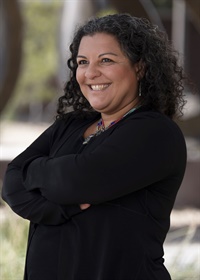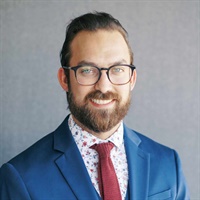
The Arizona Pediatric Psychiatry Access Line is proud to partner with the Arizona Chapter of the American Academy of Pediatrics
The partnership between the Arizona Chapter of the American Academy of Pediatrics (AzAAP) and the Arizona Pediatric Psychiatry Access Line (APAL) aims to enhance pediatric mental health care by providing Arizona pediatricians with direct access to psychiatric consultations and resources. This collaboration ensures that pediatric providers receive timely support and guidance for managing mental health concerns in children and adolescents. Together, AzAAP and APAL are committed to improving the overall mental health outcomes for Arizona's youth.
This presentation will explore the role of culture in the care of minoritized populations including migrant and Native peoples. We will differentiate between notions of cultural humility vs. competency, explore the importance of culture in biopsychosocial formulation, rapport building, and treatment planning, incorporating principles of integrative medicine and integrative psychiatry. Utilizing case examples, we will further apply cultural sensitivity and trauma-informed care within an integrative model of care.
At the conclusion of this activity, learners will be able to:
- Distinguish between Cultural Humility and Cultural Competency
- Explore a cultural-ecological whole-person model of care for migrant and/or Indigenous populations
- Apply a whole-person integrative model of care to migrant and/or Indigenous persons and families
Drs. Yoblonski and Ranjbar have no relevant financial relationships to disclose. AzAAP gratefully acknowledges financial support for this ECHO series from the University of Arizona Department of Psychiatry.

ECHO FACILITATOR: Lara Yoblonski, MD, FAAP, MPH, Pediatrician, Phoenix Children’s Hospital, AzAAP Emotional and Behavioral Health Committee Chair
Dr. Yoblonski has worked at Phoenix Childrens Hospital in the Homeless Youth Outreach program and the Center for Resiliency and Wellbeing for the past eleven years. She currently works with homeless youth and families, foster children and youth, and survivors of sex trafficking. Trauma informed care is an area of interest due to the patients she works with. She has been working with the AzAAP Emotional and Behavioral Health Committee for the past two years.

ECHO EXPERT FACULTY: Noshene Ranjbar, M.D., Associate Professor of Psychiatry, University of Arizona College of Medicine-Tucson
Born and raised in Tehran, Iran until immigrating to the US in adolescence, Dr. Noshene Ranjbar developed a passion for a holistic view of medicine and healing from early on in her life. Throughout her studies and life experiences, including her own illness as well as caring for her Mom who suffered from several autoimmune illnesses and cancer, to fostering refugee children with PTSD, to working with American Indian communities across the U.S., she developed a keen interest in approaches to healing trauma and advocating for holistic mental health in empowering, culturally appropriate ways.
Dr. Ranjbar completed undergraduate and medical school at the University of Virginia, followed by Family Medicine Internship at Middlesex Hospital/Hartford Hospital, Psychiatry Residency at the University of Arizona-Tucson, and Child and Adolescent Psychiatry Fellowship at Boston Children’s Hospital/Harvard Medical School. Board Certified in General Psychiatry, Child & Adolescent Psychiatry, and Integrative Medicine, Dr. Ranjbar currently serves as Associate Professor of Psychiatry and Director of the Integrative Psychiatry Program at the University of Arizona. She also serves on Faculty with The Center for Mind-Body Medicine, the Andrew Weil Center for Integrative Medicine, and the Integrative Psychiatry Institute.
Her research focuses on training the next generation of psychiatrists to offer a holistic approach to mental health, while serving children and families most in need. As a Robert Wood Johnson Culture of Health Leader, she is expanding her work in integrative mental health and indigenous mental health nationally and internationally.
This presentation will review the criteria for pediatric insomnia disorder along with screening and evaluation to assist in diagnosis. There will be a discussion of comorbid psychiatric conditions with insomnia that will assist participants to recognize and guide treatment, management, and resources. Dr. Nielsen will revisit nonpharmacologic interventions such as facilitating discussion around sleep hygiene. By the end of the session, participants will be able to identify evidence base for pharmacologic interventions.
Register to attend this session here
At the conclusion of this activity, learners will be able to:
- Review neuroanatomical and physiological basis for sleep
- Recognize prevalence, characteristics, and potential consequences of insomnia from childhood to adolescence
- Distinguish between the diverse nonpharmacological and pharmacological strategies and interventions utilized in managing pediatric insomnia
Dr. Nielsen and Dr. Yoblonski have no relevant financial relationships to disclose. AzAAP gratefully acknowledges financial support for this ECHO Series from the University of Arizona Department of Psychiatry.

ECHO FACILITATOR: Lara Yoblonski, MD, FAAP, MPH, Pediatrician, Phoenix Children’s Hospital, AzAAP Emotional and Behavioral Health Committee Chair
Dr. Yoblonski has worked at Phoenix Childrens Hospital in the Homeless Youth Outreach program and the Center for Resiliency and Wellbeing for the past eleven years. She currently works with homeless youth and families, foster children and youth, and survivors of sex trafficking. Trauma informed care is an area of interest due to the patients she works with. She has been working with the AzAAP Emotional and Behavioral Health Committee for the past two years.

ECHO EXPERT FACULTY: Cory Nielsen, DO, Assistant Professor of Psychiatry Creighton University School of Medicine-Phoenix
Cory Nielsen, DO is a board-certified Child, Adolescent and Adult Psychiatrist born in Phoenix, AZ. He is currently working as the Emergency/Consult Liaison Psychiatrist at Valleywise Health Medical Center, a consultant for UofA’s Arizona Pediatric Psychiatry Access Line (APAL) as well as serving as the Assistant Professor for the Department of Psychiatry at Creighton University School of Medicine. Dr. Nielsen received his BS in Biology from Grand Canyon University where he went on to complete his MS in Psychology. His thesis focused on early mental health education through its incorporation in K-12th grades. While pursuing his Doctor of Osteopathic Medicine at Midwestern University-AZCOM, he also participated in research on Duchenne Muscular Dystrophy and Marfan Syndrome. Dr. Nielsen completed his Adult Psychiatry Residency and Child and Adolescent Psychiatry Fellowship at Creighton University Arizona - Health Education Alliance. While in training, he received the national and prestigious Excellence in Psychotherapy Award from Austin Riggs Center. He recently was selected as a Southwest Safety Net Embedded Scientist Training and Research Scholar with Arizona State University College of Health Solutions and will focus on addressing needs and disparities within Serious Mental Illness and Title 36 population in Arizona. Dr. Nielsen is passionate about cultivating a genuine therapeutic alliance with his patients and their family and incorporates psychodynamic psychotherapy as well as mindfulness into his methods.
Through ongoing monthly sessions, Project ECHO: Building Primary Care Providers' Capacity to Address Pediatric Emotional and Behavioral Health provides pediatric health professionals with a platform to connect with child and adolescent psychiatrists and other PCPs in their community. The goal of the series is to equip learners with knowledge, skills, practice, and attitudes to better screen, identify, and treat a child themselves or to know when to refer the child to another specialist.
Upcoming ECHO Sessions
At the conclusion of the series, learners will be able to:
Address the basic mental health concerns of their pediatric patients through evidenced-based interventions.
Apply principles learned in the series to develop a treatment plan for patients with mental health diagnoses.
Identify when patients with mental health concerns require a higher level of care or expertise.
Assess pediatric patients for suicide risk and engage parents/guardians in safeguarding their home to mitigate risk of suicide.


